- Home
- Dan Simmons
Hardcase jk-1 Page 8
Hardcase jk-1 Read online
Page 8
They waited down the street from Sophia Farino's condo through the early-morning hours and were almost ready to bag it when Kurtz finally emerged and began strolling the opposite way. There were so few vehicles on the street that Malcolm had to let Kurtz disappear from sight and then drive in long loops to get ahead of him, always parked with other grimy vans and vehicles, always a good two blocks away. It was dark. Only the expensive military night scopes and goggles allowed Cutter and Malcolm to keep tabs on Kurtz.
For a while they thought they had run him to ground when Kurtz had clambered up under the expressway overpass, but just as Malcolm and Cutter were getting ready to go after him, Kurtz climbed down the embankment and was on the move again. For some reason, the fool had ditched his jacket. Cutter wanted to stop under the overpass and check on that, but Malcolm was too busy driving down toward the river and finding a place to park before Kurtz wandered into sight again. It was getting light. Surveillance would be impossible in half an hour or so: Kurtz would notice the same scabrous green van if it kept reappearing, even a couple of blocks away.
But luck was with them. From where they had parked in an old railroad salvage-yard, Malcolm watched through the night-vision scope, and Cutter lifted the huge binoculars as Kurtz went through his slice in the wire and let himself into the old icehouse building.
They waited another hour. Kurtz did not come out.
"I think we found his hidey-hole," said Malcolm. He rubbed his beard and lifted the Tek-9 onto his lap. Cutter grunted and clicked open his knife. "I don't know, C, my man," said Malcolm. "Big place in there. Probably dark. He know it, we don't."
The two sat in silence for another few minutes. Suddenly Malcolm grinned broadly. "You know what we need for this job, C?"
Cutter looked at him, his pale eyes empty.
"That's right," said Malcolm. "We gonna need extreme white trash, stupid enough not to know about the Death Mosque bounty, but still be willin' to go in there to kill Mr. Kurtz for next to nothing."
Cutter nodded.
"Correct," agreed Malcolm. "We know where Mr. Kurtz live. All we need to do now is bring in the Alabama Beagle Boys." Malcolm laughed heartily.
Cutter breathed through his mouth and turned to look at the old icehouse through the rain.
CHAPTER 19
"Nice couch," said Kurtz as Arlene came down the back steps and into their basement office. He was half-asleep, sprawled on the sprang, faded floral sofa. "Is it from your house?"
"Nice of you to drop by and notice," said Arlene, hanging her coat on a spike driven into the wall. "Of course it's from the house. Alan slept through many an NFL game on it. I had Will and Bobby help me haul it down here. What is this on my desk?"
"A video monitor," said Kurtz.
"A TV?"
"Go ahead, turn it on."
Arlene flicked it on and looked at the picture for a minute. It was fuzzy and in black and white and cycled through four scenes: counter, stacks, booms, and hallway. "That's it? I get to watch the perverts in the porn shop upstairs?"
"That's it," agreed Kurtz. "The owners revamped the closed-circuit surveillance system upstairs, and I got Jimmy to run a line down here and sell us one of the old monitors."
"Sell it to us?" Arlene tapped the mouse to bring her computer screen to life. "How much did it cost?"
"Fifty bucks, wiring thrown in free. I told him I'd pay when I got the money this month… or next… or whenever."
"Just so I can watch the dirty old men buying their dirty old magazines and videos."
"You're welcome," said Kurtz. He swung himself off the sprung couch and walked over to his own desk at the rear of the long room. His desk was empty, except for some files and memos left there by Arlene.
"Do you really think we need the video security?" she asked. "Both doors stay locked and we're not exactly advertising that we're here."
Kurtz shrugged. "The outer door's pretty well jimmy-proof," he said. "But the door from the porn shop is just a door. And I seem to have a few people hunting for me." He poured coffee for both of them, even though Arlene had just come in from her lunch break, carried the mugs over, and sat on the edge of her desk. He gave her Pruno's description of Malcolm Kibunte, Cutter, and Doo-Rag, then remembered Sammy Levine's brother Manny and described him as well.
"You made an enemy out of Danny DeVito?" said Arlene.
"Sounds like it," said Kurtz. "Anyway, if you see anyone on the monitor who looks like any of these four guys upstairs, you leave by one of the other doors."
"Those descriptions apply to about half of the losers who patronize the shop upstairs," said Arlene.
"All right," said Kurtz. "Amend it to—if you see anyone trying to bust through the front door up there, you head out the back. If any of them look like one of the guys I described, move even faster."
Arlene nodded. "Any other gifts for me?"
Kurtz pulled the Kimber Custom.45 ACP from the holster at the small of his back. He set it on her desk. "Couldn't afford a Doberman," he said.
Arlene shook her head and reached under her desk, pulling out a hammerless, short-barreled.32 Magnum Ruger revolver.
"Hey," said Kurtz, "an old friend!"
"I thought that if it was going to be like the old days, I'd better act as if it was the old days." She hefted the weapon. "The last few years, the only reason I've had to go out is my weekly mah-jongg at Bernice's and the twice-weekly evenings at the shooting range." She slid the Ruger back into the holstered box screwed to the underside of her desk drawer.
"They didn't let us practice much target shooting inside," said Kurtz. "You're probably a better shot than I am these days."
"I always was," said Arlene.
Hiding his relief at not having to give up the Kimber.45, Kurtz set the semiautomatic back in its concealed carry holster, removed the holster, and flopped back on the couch.
"Are you interested in how Sweetheart Search, Inc., is doing?" said Arlene. "It is your business, after all. And all the skip-trace sites and services you told me about are working out fine. We pay them, charge the sweetheart wannabe twenty percent more, and everyone's happy. Want to see it in action?"
"Yeah, sure," said Kurtz. "But right now I'm thinking about something I'm working on. You could use it to look up Malcolm Kibunte for me, though. Usual sources—court appearances, warrants, back taxes due, whatever. I know he won't have a real home address, but I'll take whatever you find."
Arlene tapped away at her computer keys for a while, checking that day's hits, processing encrypted credit-card orders for searches, transferring the money to the new account, filing data into her search engines, and then beginning the search for Malcolm Kibunte. Finally she said, "I know you never talk about your cases, but do you want to tell me about what's going on now? There's some scary stuff in here about your Mr. Kibunte."
When Kurtz did not reply, she glanced his way. Sprawled on the couch, the holstered.45 clutched to his chest like a teddy bear, he was beginning to snore.
CHAPTER 20
Blue Franklin was an old blues bar that had only gotten better with age. Young up-and-coming blues stars had played in the smoke haze and platter rattle of the little place on Franklin Street for six decades, gone on to national prominence, and then come back to play to packed houses in their prime and old age. The two playing this night were in their prime: Pearl Wilson, a vocalist in her late thirties who combined a Billie Holiday-like poignancy with a growing Koko Taylor rough edge, and Big Beau Turner, one of the best tenor-sax men since Warne Marsh.
Kurtz came for the late set, nursed a beer, and enjoyed Pearl's interpretation of "Hell Hound on My Trail," "Sweet Home Chicago," "Come in My Kitchen," "Willow, Weep for Me," "Big-Legged Mamas Are Back in Style," and "Run the Voodoo Down," followed by Big Beau doing solo riffs on a series of Billy Strayhorn pieces: "Blood Count," "Lush Life," "Drawing-Room Blues," and "U.M.M.G."
Kurtz could not remember a time, even as a boy, when he had not loved jazz and blues. It was th
e closest thing to religion he knew. In jail, even when he'd been allowed access to a Discman or cassette player, which wasn't that much of the time, even a perfect recorded performance such as Miles Davis's remastered "Kind of Blue" had been no substitute for a live performance with its ebb and flow of tidal forces, like a well-played baseball game gone deep into extra innings, now all lethargy and distance, transformed in an instant into a blur of motion and purposefulness, and with its cocaine glow of unlimited, interlocked, immortal energy. Kurtz loved jazz and the blues.
After the last set, Pearl, Beau, and the pianist—a white kid named Coe Pierce—came over to join him for a drink before closing. Kurtz had known Beau and Pearl years ago. He wanted to buy them a drink, but he barely had enough money to pay for his beer. They chatted about old music, new jobs, and old times—tactfully ignoring the past decade or so of Kurtz's absence, since even the piano kid seemed cued in on that—and eventually Blue Franklin's owner, Daddy Bruce Woles, a hearty, heavyset man so black that his skin glowed almost eggplant in the smoke-hazy spotlights, came over to join them. Kurtz had never seen Woles without the stub of a cigar in his mouth, and had never seen the cigar lighted.
"Joe, you got an admirer," said Daddy Bruce. He waved over more drinks for everyone, on the house.
Kurtz sipped his fresh beer and waited.
"Little runty guy in a grubby raincoat came in here three nights ago and again last night. Didn't pay any attention to the music. First time, Ruby was tending bar, and this dwarf lugs this big, like legal briefcase over and props it on the bar, asks about you. Ruby, she knows you're out, of course, and doesn't say anything. Says she never heard of you. The dwarf leaves. Ruby tells me. Last night, same dwarf in a dirty raincoat, same battered briefcase, only I'm at the bar. I never heard of you, either. I tried to get the dwarfs name, but he just left his beer and went out. Haven't seen him tonight. Friend of yours?"
Kurtz shrugged. "Does he look something like Danny DeVito?"
"Yeah," said Daddy Bruce. "Only not cute and cuddly like that, you know? Just turd-ugly all the way down."
"Someone told me that Sammy Levine's brother Manny's looking for me," said Kurtz. "Probably him."
"Oh, God," said Pearl. "Sammy Levine was a mean little dwarf, too."
"Used to use wood blocks on the pedals to drive that damn giant Pontiac he and Eddie Falco bombed around in," said Big Beau. Then, "Sorry, Joe, didn't mean to bring up sad times."
"That's okay," said Kurtz. "Anything sad, I got out of my system a long time ago."
"Doesn't sound like this Manny Levine dwarf has," said Daddy Bruce.
Kurtz nodded.
Pearl took his hand. "It seems like just yesterday that you and Sam were in here every night, all of us catching a late dinner and drinks after the last set, and then Sam not drinking because…"
"Because she was pregnant," finished Kurtz. "Yeah. Only I guess it seems like a while ago to me."
The vocalist and the tenor sax player glanced at each other and nodded.
"Rachel?" Beau said.
"With Sam's ex-husband," said Kurtz.
"She must be… what—eleven, twelve now?"
"Almost fourteen," said Kurtz.
"To good times again," said Pearl in that wonderful smoke-and-whiskey voice of hers. She lifted her glass.
They all lifted their glasses.
It was getting cold at night. As Kurtz walked back through alleys and parking lots to his warehouse, wearing the corduroy trousers and denim shirt Sophia Farino had given him—the shirt worn untucked to conceal the little.38 in his waistband—he briefly considered heading back to the office to sleep. At least the basement of the porno shop was heated. But he decided not to. What was the old maxim? Don't shit where you eat? Something like that. He wanted to keep business and business separate.
He was taking a shortcut down a long alley between warehouses, less than six blocks from his own warehouse, when a car pulled in at the end of the alley behind him. Headlights threw his shadow ahead of him on the potholed lane.
Kurtz glanced around. No doorways deep enough to hide in. A loading dock, but solid concrete—he could roll up onto it if the car accelerated toward him, but he could not slip under it. No fire escapes. Too far to run to me next street if the car came at him.
Not looking back, staggering slightly as if drunk, Kurtz pulled the.38 from his belt and palmed it.
The car moved slowly down the long alley behind him. From the sound of the V-8 engine, the thing was big—at least a Lincoln Town Car, possibly a real limo—and it was in no hurry. It stopped about fifty feet behind him.
Kurtz stepped into the corner where the loading dock met brick wall and let the pistol drop into his fingers. He cocked the hammer.
It was a limo. The headlights went out and in the dimmer glow of the parking lights, Kurtz could see the huge mass of the black car silhouetted against distant streetlights, its exhaust swirling around it like fog. A big man got out of the front passenger side and another big man stepped out of the rear left door. Both men reached under their blazer jackets to touch guns.
Kurtz set the hammer back in place, slid the small pistol back up into his palm, and walked toward the limousine. Neither of the bodyguards drew weapons or moved to frisk him.
Kurtz walked past the man holding the rear door open, glanced into the rear seat—illuminated by several halogen spots—and got into the car.
"Mr. Kurtz," said the old man seated there. He was wearing a tuxedo and had a Stewart-plaid lap robe over his legs.
Kurtz dropped into the jump seat opposite him. "Mr. Farino." He uncocked the pistol and slipped it back in his waistband.
The bodyguards closed the doors and remained outside in the cold.
CHAPTER 21
"How is your investigation proceeding, Mr. Kurtz?"
Kurtz made a rude noise. "Some investigation. I interviewed your former accountant's wife for about five minutes and she ended up dead within the hour. That's all I've done."
"Investigating was never your real purpose, Mr. Kurtz."
"Tell me about it. It was my idea, remember? And my real purpose seems to be working fine. They've made the first move on me."
"You don't mean Carl?"
"No," said Kurtz, "I mean whoever called the cops and set me up after they murdered—butchered—Mrs. Richardson. They'd arranged a yard-shank job on me as soon as I got in general population."
Don Farino rubbed his cheek. It was a particularly rosy cheek for such a sick old man. Kurtz wondered idly if the don used makeup.
"And have you determined who set you up for this?" asked Farino.
"It's been suggested that it was a mook named Malcolm Kibunte who sometimes works for your lawyer, Miles. Do you know this Kibunte or the knife-man he hangs with? Cutter?"
Farino shook his head. "One is not able to keep track of all the black trash that comes through town these days. I presume these two are black."
"Malcolm is," said Kurtz. "Cutter's described as albino-like."
"And who told you about the shank job and suggested these names to you, Mr. Kurtz?" Farino's eyes were rapt.
"Your daughter."
Farino blinked. "My daughter? You've spoken to Sophia?"
"I've more than spoken to her," said Kurtz. "She bailed me out of jail before I went to County, and then took me home with her and tried to fuck me to death."
Don Farino's thin lips pulled back from his teeth and his fingers clenched on his knees under the robe. "Be careful, Mr. Kurtz. You speak too candidly."
Kurtz shrugged. "You're paying me for the facts. That was the setup we agreed to through Little Skag before I got out—I'd be point man and Judas goat for you and flush out whoever's betraying you. It was your daughter who acted—both in the bailing and fucking departments—I'm just reporting."
"Sophia has always been strong-willed and… of questionable judgment in her sexual choices," said Farino.
Kurtz shrugged again. He didn't give a damn about the fact or th
e insult behind it.
"Sophia told you about the connection between Miles and these two killers?" Farino said softly. "Suggesting that she believes Miles is behind everything?"
"Yep. But that doesn't mean she's telling the truth. She could be running both Miles and Malcolm and his knife-freak buddy."
"But you said that she was the one who bailed you out and warned you about the yard contract on you, Mr. Kurtz."
"She bailed me out. I have to take her word for the yard shank at County."
"And why would she go to all that trouble and lie?" asked Farino.
"To check me out," suggested Kurtz. "To find out what I'm really up to and how much I know. To put herself above suspicion." Kurtz looked out the tinted windows. The alley was very dark. "Mr. Farino, Sophia met bail, took me home, and almost threw me into the sack. Maybe she's just a tramp, like you say, but I don't believe it was my magnetic personality that made her go out of her way to seduce me."
"I doubt that you required much seducing, Mr. Kurtz."
"That's not the point," said Kurtz. "The point is that you know how intelligent she is—hell, that's why you're afraid she might be behind Richardson's disappearance and the truck hijackings—so you see why it makes more sense that there's a motive behind her actions."
"But Sophia is in line to inherit my wealth and much of the legitimate family business," said the don, looking at his clenched hands.
"That's what she said," said Kurtz. "Do you know any reasons why she would want to hurry the process along?"
Don Farino turned his face away. "Sophia has always been… impatient. And she would like to be Don."
Kurtz laughed. "Women can't be dons."
"Perhaps Sophia does not accept that," said Farino with a thin smile.
"You're not quite as busy circling the drain or as out of the loop as everyone thinks, are you?" said Kurtz.

 The Terror
The Terror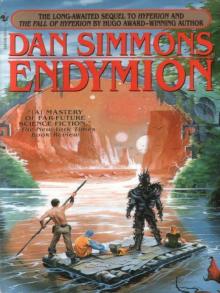 Endymion
Endymion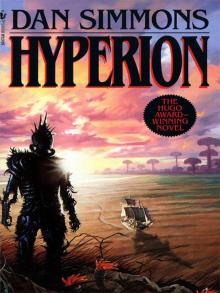 Hyperion
Hyperion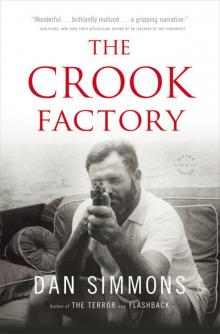 The Crook Factory
The Crook Factory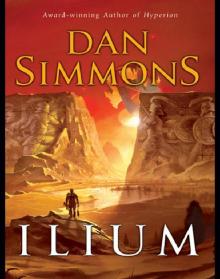 Ilium
Ilium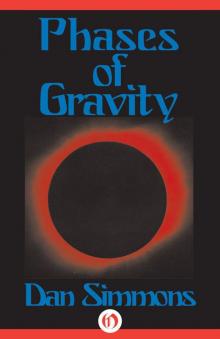 Phases of Gravity
Phases of Gravity Hardcase
Hardcase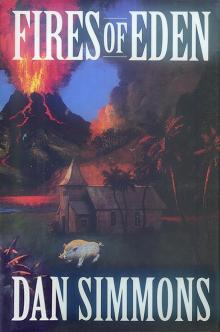 Fires of Eden
Fires of Eden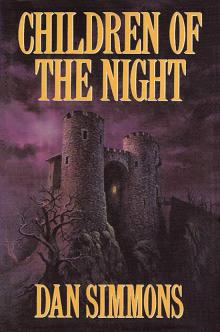 Children of the Night
Children of the Night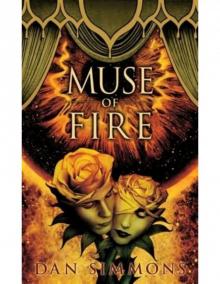 Muse of Fire
Muse of Fire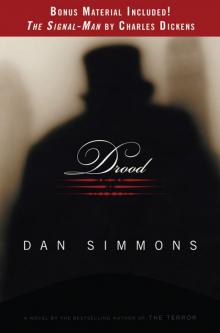 Drood
Drood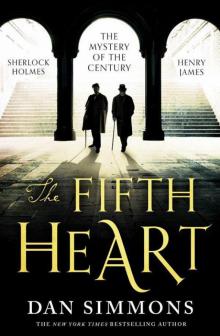 The Fifth Heart
The Fifth Heart Carrion Comfort
Carrion Comfort The Hollow Man
The Hollow Man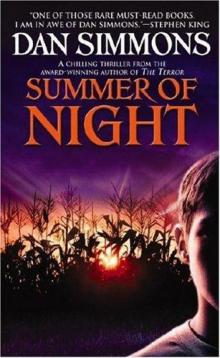 Summer of Night
Summer of Night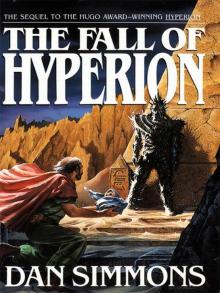 The Fall of Hyperion
The Fall of Hyperion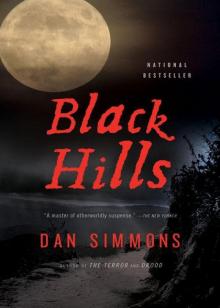 Black Hills
Black Hills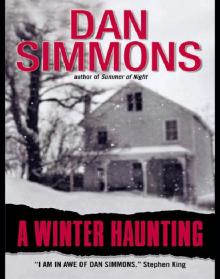 A Winter Haunting
A Winter Haunting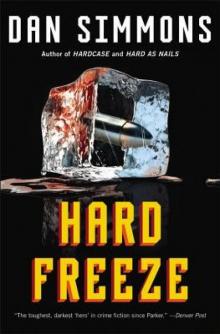 Hard Freeze
Hard Freeze Prayers to Broken Stones
Prayers to Broken Stones Hard as Nails
Hard as Nails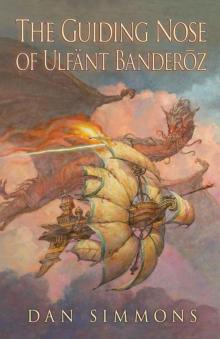 The Guiding Nose of Ulfant Banderoz
The Guiding Nose of Ulfant Banderoz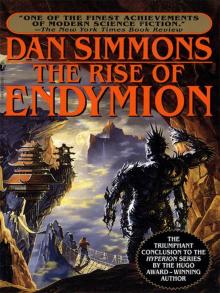 The Rise of Endymion
The Rise of Endymion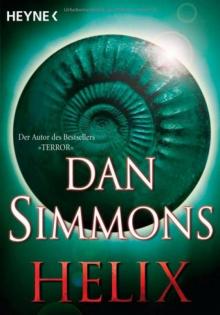 Orphans of the Helix
Orphans of the Helix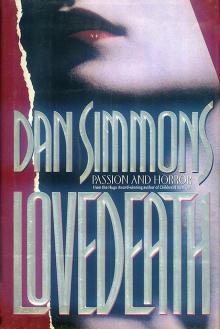 Lovedeath
Lovedeath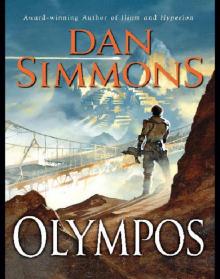 Olympos
Olympos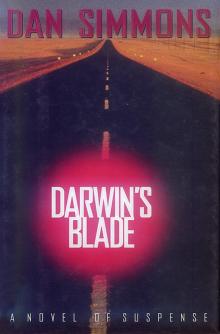 Darwin's Blade
Darwin's Blade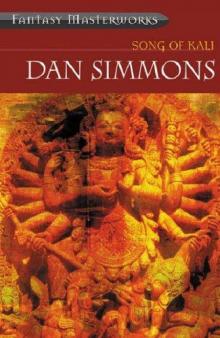 Song of Kali
Song of Kali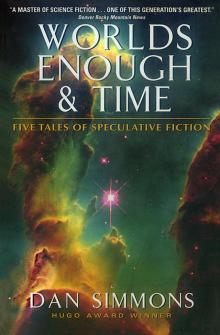 Worlds Enough & Time: Five Tales of Speculative Fiction
Worlds Enough & Time: Five Tales of Speculative Fiction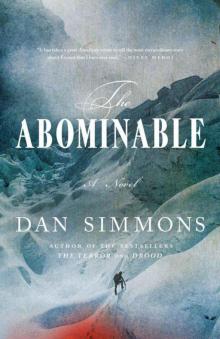 The Abominable
The Abominable The Death of the Centaur
The Death of the Centaur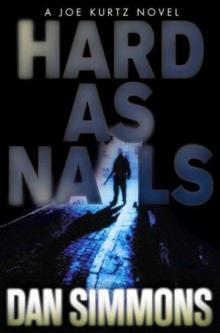 Hard as Nails jk-3
Hard as Nails jk-3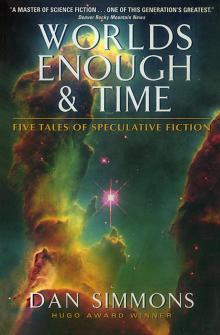 Worlds Enough & Time
Worlds Enough & Time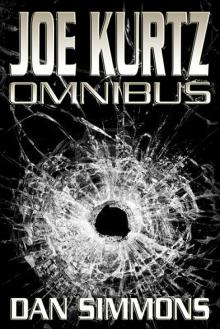 Joe Kurtz Omnibus
Joe Kurtz Omnibus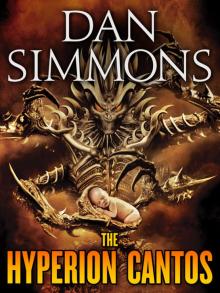 The Hyperion Cantos 4-Book Bundle
The Hyperion Cantos 4-Book Bundle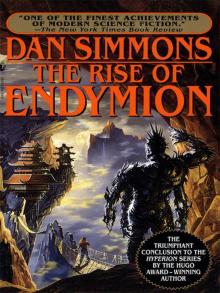 Rise of Endymion
Rise of Endymion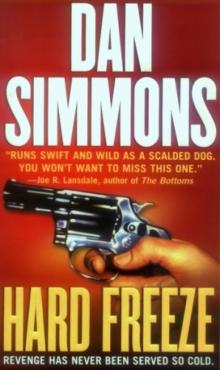 Hard Freeze jk-2
Hard Freeze jk-2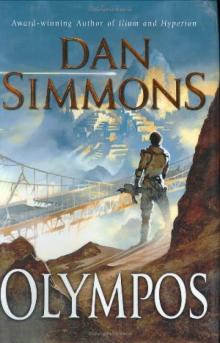 Olympos t-2
Olympos t-2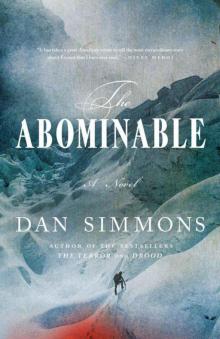 The Abominable: A Novel
The Abominable: A Novel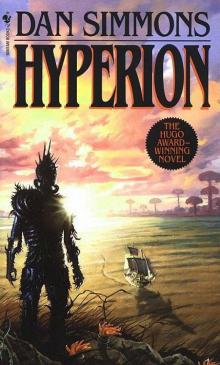 Hyperion h-1
Hyperion h-1 Remembering Siri
Remembering Siri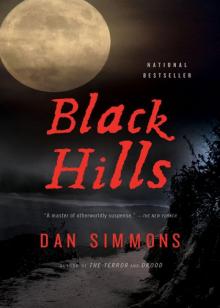 Black Hills: A Novel
Black Hills: A Novel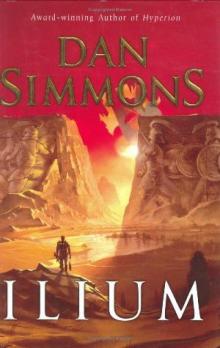 Ilium t-1
Ilium t-1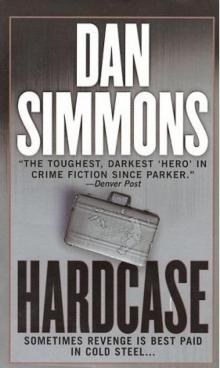 Hardcase jk-1
Hardcase jk-1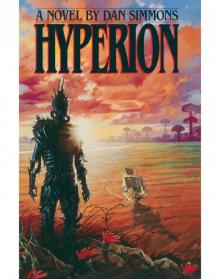 Hyperion 01 - Hyperion
Hyperion 01 - Hyperion